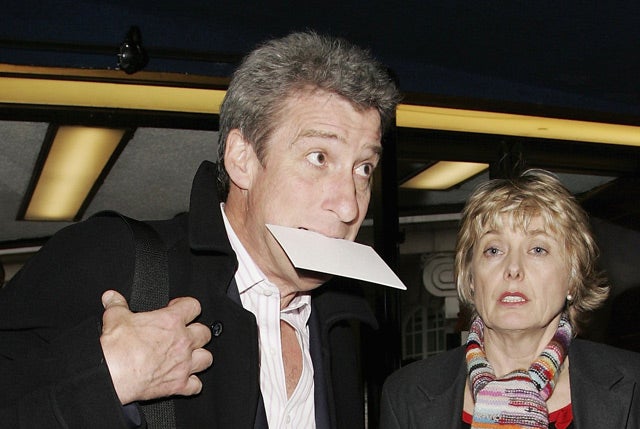Fury as Paxman says middle-class white men have no chance in TV

Your support helps us to tell the story
From reproductive rights to climate change to Big Tech, The Independent is on the ground when the story is developing. Whether it's investigating the financials of Elon Musk's pro-Trump PAC or producing our latest documentary, 'The A Word', which shines a light on the American women fighting for reproductive rights, we know how important it is to parse out the facts from the messaging.
At such a critical moment in US history, we need reporters on the ground. Your donation allows us to keep sending journalists to speak to both sides of the story.
The Independent is trusted by Americans across the entire political spectrum. And unlike many other quality news outlets, we choose not to lock Americans out of our reporting and analysis with paywalls. We believe quality journalism should be available to everyone, paid for by those who can afford it.
Your support makes all the difference.A war of words between two of the nation's best-known news presenters has erupted after the BBC's chief interrogator, Jeremy Paxman, said it had become impossible for middle-class white men to make it in the television world.
The 58-year-old presenter, who is a Cambridge graduate, made his comments in a pre-recorded interview shown at the Edinburgh International Television Festival.
Responding to the suggestion that television had become a "man's world", Mr Paxman said: "The worst thing you can be in this industry is a middle-class white male. If any middle-class white male I come across says he wants to enter television, I say 'give up all hope'. They've no chance."
But yesterday, his counterpart at Channel 4 News, Krishnan Guru-Murthy, said the paranoia felt by men in the industry had caused Mr Paxman to lose perspective about the groups really struggling to make it on to our screens. "I feel awfully sorry for white, middle-class men who went to Oxbridge... but I'm not sure they are the ones at the greatest disadvantage," he said.
"Obviously, the people who really are facing the biggest struggle to make it into television are those from working-class backgrounds and people from ethnic minorities. If they are both working class and from an ethnic minority, they really are up against it."
Mr Paxman also argued that women were increasingly being selected for the industry's top jobs. The Newsnight presenter listed five female television executives, including the BBC1 controller, Jay Hunt, the head of Channel 4 news and current affairs, Dorothy Byrne, and the soon-to-be channel Five chief executive, Dawn Airey, as evidence for his view. "Do I think it's a man's world in television? That is the most ridiculous question I have been asked all week," he said.
His remarks brought strong criticism from the broadcaster Mariella Frostrup. "[Mr Paxman] lists five women because he couldn't possibly name all the men in positions of power in TV because he would be there all bloody day," she said. "It seems to me that TV is a fantastic place for middle-class white males. They are very much judged to be the people imbued with a sort of gravitas that women are still struggling to achieve."
Katherine Rake, the director of the women's campaign group the Fawcett Society, spoke out from the audience after watching the screening of Mr Paxman's interview. "Unfortunately, he's very out of touch with reality," she said. "When you look at who's making the editorial decisions, we found only one out of 17 people was a woman. If you look at the last series of Have I Got News For You, out of 20 contestants they had four women. There is a failure to represent women in terms of news and political content."
It is not the first time one of the BBC's top news presenters has caused a stir with fears of a growing pro-female bias. In 2005, Michael Buerk caused controversy by saying men had become little more than "sperm donors" due to a dramatic shift in the power of the sexes. His former BBC colleague Anna Ford described his comments as "bonkers".
Join our commenting forum
Join thought-provoking conversations, follow other Independent readers and see their replies
Comments